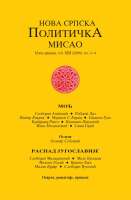Moć
Power
Author(s): Robert Dahl Subject(s): Politics / Political Sciences
Published by: Nova srpska politička misao
Keywords: power; influence; authority; government;
Summary/Abstract: At the most general level, power terms in modern social science refer tu subsets of relations among social units such that the behaviors of one or more units (R) depend in some circumstances on the behavior of the other units (C). The closest equivalent to the power relation is the causal relation. For the assertion ‘C has power over R’, one can substitute the assertion, ‘C’s behavior causes R’s behavior`. If one can define the causal relation, one can define influence, power, or authority, and vive-versa. Even though the analysis has not produced many rigorous causal models, it has spawned a profusion of schemes for classifying types of power relations. Among the characteristics most often singled out for attention are (1) legitimacy: the extent to which R feels normatively obliged to comply with C; (2) the nature of the sanctions: whether C uses rewards or deprivations, positive or negative sanctions; (3) the magnitude of the sanctions: extending from severe coercion to no sanctions at all; (4) the means or channel employed: whether C controls R only by means of information that changes R’s situation or his environment of rewards and deprivations. These and other characteristics can be combined to yield many different types of power relations.
Journal: Nova srpska politička misao
- Issue Year: 13/2006
- Issue No: 01+04
- Page Range: 35-57
- Page Count: 21
- Language: Serbian
- Content File-PDF

